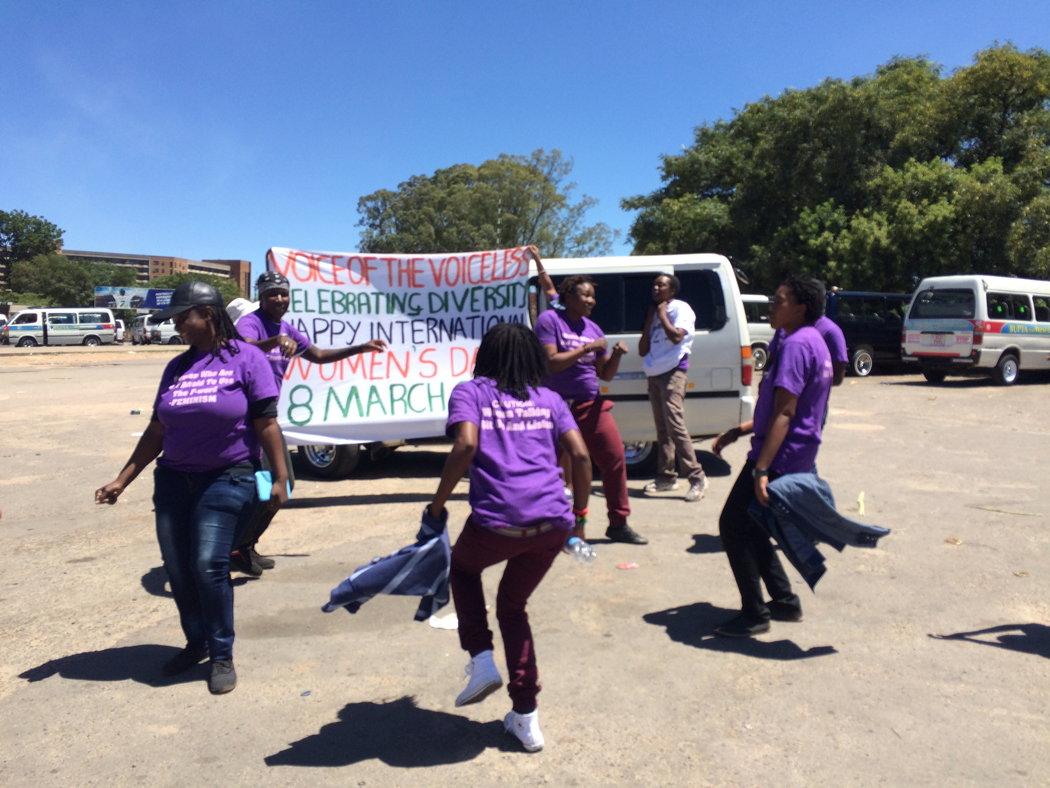- 4 mins read time
- Published: 16th May 2015
‘A yes vote in Ireland will give us hope for LGBT rights in Zimbabwe’

Oxfam Ireland is supporting a ‘Yes’ vote in Republic of Ireland’s marriage referendum on May 22nd because we believe that equality and human rights belong to us all, regardless of sexual orientation. These rights include the right to marry the person you love. We work with civil society organisations and citizen activists to build a social movement for justice and equality on a broad range of issues, including gay rights.
Brian Malone, Oxfam Ireland’s Digital Coordinator, recently visited Zimbabwe and met with an Oxfam supported, feminist collective of lesbian, bisexual and transgender women called Voice of the Voiceless (VOVO).
The LGBT community in Zimbabwe are denounced by their aggressively homophobic government. Homosexuality is a crime under Zimbabwean law with a one-year prison sentence for sexual relations between men. Hate speech, beatings, arbitrary arrests and even ‘corrective’ rape are rife.
Supported by Oxfam, VOVO provides a safe space for LBT women to connect, share stories and raise the visibility of women’s issues within the broader LGBT community. Sian Masuko, Oxfam Women’s Rights Programme Manager in Zimbabwe, explains that, for many of them, VOVO meetings are the only time these women feel safe enough to be who they really are.
Some are private, invite only gatherings where members feel safe to share their stories openly. Other events are more public like last year’s courageous feminist ‘transect’ walk around Bulawayo, Zimbabwe’s second largest city, highlighting the areas where LBT women don’t feel safe.
“We went to the Central Police Station and a trans woman spoke because she had been arrested. She spoke about how difficult it is to be free and to be who you are and how you are constantly attacked on the basis of your identity. That was a bit of a risky one so we had to stand at a slight distance.”
Carol and Sku, bravely agree to share their experiences of being gay in Zimbabwe. Sku is wearing a purple t-shirt with, ‘Women Who Are Not Afraid to Use the F-word – Feminism’, written on it. Carol makes a joke about not wanting to be on camera – not for personal, security reasons but because she thinks she “looks like a pirate” today.
“I think Zimbabwe would have a lot of ‘actors’ and ‘actresses’,” Carol says. “You’re always in character. It takes a toll on the mind. Sometimes it’s just making it through the day and saying ok I didn’t get arrested. I got home after sunset and no-one mugged me. No one spiked my drink at the bar. No one sent me threatening messages.”
In the middle of all this oppression, Sian tells me there’s also a lot of laughter and celebration.
“I think for VOVO this year there was a shift to say, ‘You know what? We’re actually not going to apologise for who we are anymore. We’re going to start to celebrate’. Because what we see as a good, positive, democratic society is a celebration of diversity and not a society where you have to apologise for who you are, and are always having to cut corners or trying to pretend.”

Above: VOVO members dance in the streets of Bulawayo, t-shirts emblazoned with the message: 'Women who are not afraid to use the F-word - FEMINISM'. Photos: Sian Masuko/Oxfam.
Irish Marriage Equality Referendum
I told Carol and Sku about the gay rights movement in Ireland and we watched Panti's Noble Call. Then I told them how, on May 22nd, voters in the Republic of Ireland will take part in a national referendum on legalising same-sex marriage, i.e. allowing gay and lesbian couples the right to civil marriage. As it currently stands, lesbian and gay couples cannot get married and do not have equal status under the Irish Constitution.
I was curious to know how they feel when they see LGBT communities in other countries taking strides towards equality – left behind or hopeful?
For Sku, it’s the latter. “It shows us that, yeah, you can fight for something and something can actually come out of it,” she explains. “So it’s a good thing, it’s showing us that as time goes on maybe things can change here in Zim too.”
“It’s very inspiring that you’re actually at that stage in Ireland,” Carol adds. “I’m actually looking forward to hearing how that I goes. If I were Irish I would definitely say yes!... I hope the desired outcome becomes the actual outcome.”
A Yes vote in the referendum won’t just be a leap forward for human rights in Ireland. It will send a message of hope to members of the LGBT community all over the world that inequality can be challenged, that positive change can happen.
Use your voice for equality – Vote YES on May 22nd.




